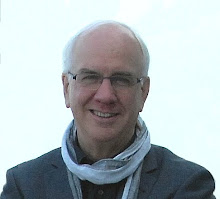Edward de Bono's Thinking Hats
Six Thinking Hats® is a simple, effective parallel thinking process that helps people be more productive, focused, and mindfully involved. And once learned, the tools can be applied immediately!
You and your team members can learn how to separate thinking into six clear functions and roles. Each thinking role is identified with a colored symbolic "thinking hat." By mentally wearing and switching "hats," you can easily focus or redirect thoughts, the conversation, or the meeting.
Using Six Thinking Hats®, you and your team will learn how to:
- look at problems, decisions, and opportunities systematically
- use Parallel Thinking™ as a group or team to generate more, better ideas and solutions
- make meetings much shorter and more productive
- reduce conflict among team members or meeting participants
- stimulate innovation by generating more and better ideas quickly
- create dynamic, results oriented meetings that make people want to participate
- go beyond the obvious to discover effective alternate solutions
- spot opportunities where others see only problems
- think clearly and objectively
- view problems from new and unusual angles
- make thorough evaluations
- see all sides of a situation
- keep egos and "turf protection" in check
- achieve significant and meaningful results
More

